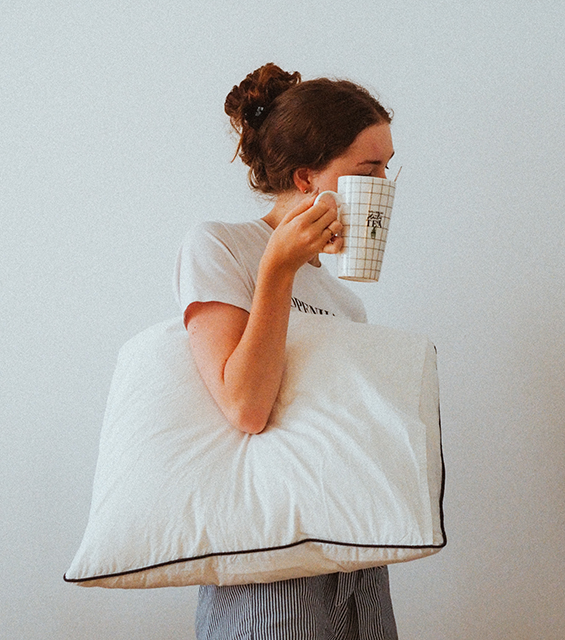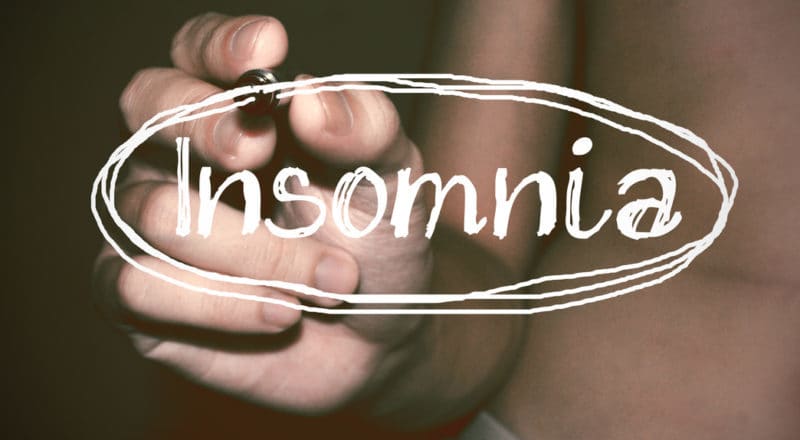Sleep is a basic human need, just like eating, drinking, and breathing. Good sleep allows your body to heal and rejuvenate. It helps your brain work properly. Sleeping is also your body’s way of preparing for the day ahead. It helps you to learn, pay attention, and make decisions. A good night’s sleep also dictates the kind of mood you’ll be in and your ability to cope with stress.
If you lose sleep for several nights in a row, even if it’s just a few hours per night, your ability to perform can be affected just as if you hadn’t slept at all for a day or two. Some people try to catch up by napping during the day, but this doesn’t always help.
A deficiency in sleep has been linked to many chronic health problems, which can include:
- High blood pressure
- Heart disease
- Diabetes
- Obesity
- Depression
- Kidney disease
- Endocrine dysfunction
- Alzheimer’s disease
- Infertility
- Lowered immune system response
- ADHD
Our Approach to Sleep Issues at the DLHC in Southlake, Texas

It’s estimated that up to 70% of all adults in the United States have sleep problems. Many times, when people tell their physician that they are having problems, they are prescribed a sleeping pill. Unfortunately, this is only a band-aid approach and will never resolve the root cause of the problem.
Functional medicine is the practice of addressing the entire body by investigating the root cause of symptoms through science-based diagnostics and by simply spending more time with patients. This approach is ideal for getting to know each patient’s symptoms, histories, and individualized health care needs.
Sleep deprivation can have multiple causes and symptoms, and it’s important to determine what is at the bottom of any such issue. Your health depends on it. Even if you practice healthy eating habits and exercise, if you are not getting the sleep that you need, you will not be able to function well, and this significantly increases your risk of developing chronic disease.
The two main reasons people have problems getting quality rest are the lifestyles that they lead and/or an underlying medical condition.
Medical Issues that Can Cause Sleep Problems
Melatonin and Cortisol Imbalances
To understand how cortisol and melatonin regulate the sleep cycle, we need to examine the circadian rhythm.
Every single living thing on earth, from plants to animals to humans, has a 24-hour pattern that’s followed each day called the circadian rhythm. Besides being dictated by external factors such as sunlight, the hypothalamus gland — often referred to as your “master clock” — regulates behavior, sleep, body temperature, metabolism, and hormone levels.
Melatonin is a hormone produced in the pineal gland and the gut. Studies have shown that the health of the gut microbiome heavily influences sleep, so if the gut is hindered in its ability to produce melatonin, it can cause sleep problems. Serotonin, often referred to as the “feel good” hormone, is a precursor to melatonin. Up to 70% of serotonin is produced in the gut as well, so a deficiency here can be a double whammy.

How Our Behavior Patterns Affect Melatonin and Cortisol Production
We can look at our ancestors’ behavior to get a better understanding of how melatonin and cortisol are affected by the circadian rhythm. They went to bed early and got up early to face the day. There were no televisions or smartphones (which produce blue light) used at night to disrupt this natural rhythm.
These patterns ensured survival. They were exposed to sunlight as soon as they got up and for several hours each day. Their fight-or-flight responses (cortisol levels) needed to be at their peak during the day in order for them to thrive. This lifestyle pattern was also conducive to sleeping at nightfall when cortisol levels dropped and melatonin levels increased.
Obviously, our lifestyles are drastically different from our ancestors. Many people can’t get exposure to sunlight early in the day. Our hectic lifestyles also expose us to stress throughout the day and evening. To make matters worse, sleep deprivation also causes cortisol secretion to get out of sync, which can make you feel tired in the mornings and wired in the evenings. A chronic lack of sleep also makes you produce too much cortisol, putting you in an extended “survival” mode, which also causes you to store too much fat.
Blue light emitted from digital devices impedes the natural circadian rhythm even further because it disrupts the much-needed melatonin production required for good sleep. More studies are emerging that show how much of an effect blue light has on sleep.
Other Hormonal Imbalances
Deficiencies in other hormones, such as progesterone and estrogen, can also impede sleep. Progesterone is a calming hormone; it helps to ease anxiety and can greatly aid in getting good, quality sleep.
An over or underactive thyroid can also affect sleep. The thyroid gland regulates metabolism and many other chemical reactions that take place in the human body.
Dr. Berutti and PA Melanie Martin are experts in diagnosing and treating hormone deficiencies and imbalances.
Magnesium Deficiency
Magnesium is known as the “magic mineral” and is considered a natural tranquilizer, sleep aid, and muscle relaxer. 48% of people in the U.S. are deficient in this mineral. Magnesium glycinate is the most easily tolerated form to take since other forms can cause some digestive upsets (magnesium is also a natural laxative).
Magnesium can also be used topically. Epsom salts are largely magnesium, which can be absorbed through your skin, so it’s a great idea to include them in a hot bath before bedtime. They will help relax you mentally and physically and can be an important part of your “wind down” ritual before bed.
Sleep Apnea
Sleep Apnea is a common and dangerous condition that can occur during sleep. This disorder is characterized by periods where you stop breathing for a brief time throughout the night. If you are a snorer, you could also have sleep apnea. It’s obviously dangerous to stop breathing several times a night, but this also can continuously interrupt the sleep cycle and prevent you from getting the quality deep sleep that your brain and body rely on for you to be healthy. Sleep apnea is a health hazard in and of itself, but it also leads to diseases such as high blood pressure and cardiovascular disease.
 Other Health Causes of Sleep Disturbances
Other Health Causes of Sleep Disturbances
- Restless Leg Syndrome
- Chronic pain
- Anxiety
- Depression
- Allergies
- GERD and other gastrointestinal disorders
- Insulin Resistance
- Urinary problems
- Unhealthy gut microbiome
Lifestyle
Lifestyle factors are also a huge contributor to sleep deprivation. We lead hectic, busy lives, and in order to get quality sleep, it’s important to have a routine before bed. Think about when you were a child and had an established bedtime routine. Going to bed at the same time each night helps you to establish regular patterns, but it’s necessary to turn off the devices and the television so that your mind and body can relax to prepare for sleep.
Anxiety, worry, and excessive mind chatter can keep you from falling asleep easily. Having a designated bedtime routine can help with this. It’s also helpful to write down your worries or things that you have to do the next day in order to “release” them from the mind, so sleep will come easier.
Caffeine consumed too late in the day can definitely keep you awake at night. So can alcohol consumption. Most people think that alcohol relaxes them and helps to get them to sleep. While it is true that it can help you relax, it interferes with your sleep cycles, which prevents you from getting quality sleep.
Exercising too late in the day can also affect sleep since it raises cortisol levels. Ideally, for sleep, you want your cortisol levels to be higher in the earlier hours of the day.
Sleep Cycles
One reason that sleep is so important to health is that this is when the body repairs, regenerates, and restores itself. If your sleep cycles are continuously interrupted, you will not wake up feeling refreshed, no matter how many hours of sleep you’re getting.
Ideally, you should move through the various cycles of sleep every 90 to 110 minutes. Different physiological changes occur throughout your body and brain during each cycle. REM (Rapid Eye Movement) is the dreaming state of sleep and only occurs once during each cycle. No dreaming occurs in the others.
- Stage 1 – Drowsy sleep stage. This cycle is when you first fall asleep, and it’s a very light state. You can be easily awakened during this time, but it’s also when brain activity begins to slow.
- Stage 2 – The heart rate slows down, and body temperature decreases. Brain waves continue to slow.
- Stage 3 – Deep sleep. This is the most important time for healing and restoration of the body. The brain enters the very slow, Delta-waves phase. Human Growth Hormone, which is responsible for cell growth, reproduction, and regeneration, is released during this deep sleep phase.
- Stage 4 – REM, or the dreaming stage. Brain waves become more active, and dreaming takes place.
Each cycle lasts approximately five to fifteen minutes. During the earlier part of the night, there is less time spent in REM sleep and more time spent in the deep sleep cycle. Closer to morning, the opposite occurs: the deep sleep cycle is shortened, and the dreaming stage is longer.
Any interruption or disturbance of sleep throughout the night can cause a lack of time spent in the various cycles, including the deep sleep stage, which is crucial to health.
Sleep: A Comprehensive Approach

Because lifestyle and everyday choices affect sleep so greatly, it’s important to make concerted efforts to change behavior and/or eating habits. This is so much easier said than done! One reason it’s difficult to change behavior is that the brain isn’t always accepting of the change. Whenever behavioral patterns or habits are established, neurotransmitters fire in the brain, which causes it to keep those habits alive and well! In other words, our own brains can trick us into acting on unhealthy behaviors.
The first step to overcoming this is to first be aware that it’s happening. Rather than going through the motions of our existing everyday lives, we must be mindful in order to change our behavior.
What also makes it difficult is that sleep problems make us tired! When you’re chronically tired, it’s hard to make efforts to change. This can make getting a good night’s sleep feel insurmountable, but there are things that you can do. It’s not as important that you do them all at once, just that you try. Baby steps.
Steps to Improve Your Sleep
- See your doctor! At the Dynamic Life Health Center, we can identify any medical issues that may impede your ability to get a good night’s sleep and help to get those resolved.
- Try using a journal or daily planner to observe habits and behaviors that may sabotage your sleep. Correlate those behaviors with how well you sleep each night, and then make changes, little by little.
- Go to bed and get up at the same time every day.
- Eat a cleaner diet. Processed foods and a diet high in sugars and starches can wreak havoc on gut health and blood sugar. To learn more about improving your gut microbiome, click here.
- Expose yourself to sunlight early in the day for at least 30 minutes. This will help with your melatonin production.
- If you suffer from anxiety or have trouble turning your mind off at night, try writing your worries or things to do down on a notepad.
- UNPLUG at least one hour before bedtime. This will eliminate the “blue light” effects on your endocrine system, which inhibit sleep.
- Take a hot bath in Epsom salts. A bath is a good way to unwind, and these salts contain magnesium which is absorbed through the skin. Double bonus!
- Try reading a book before bed to help your mind escape and calm internal chatter.
- Turn down the thermostat. Studies have shown that a cool room is more conducive to a good night’s sleep.
- Curb caffeine consumption in the afternoon and evening.
- Avoid excessive alcohol use.
- Make your bedroom as dark as possible. This helps your body utilize melatonin more effectively. If there’s too much light pollution for total darkness, try blackout curtains or a sleep mask.
- Make your bedroom a tranquil environment.
- Use relaxation techniques, such as meditation or prayer.
Contact our New Patient Coordinator for more information
When many patients come to see us, they may have lost hope because they’ve felt unwell for so long and sometimes don’t see any light at the end of the tunnel. It’s rewarding as a practitioner to be able to help so many people realize a much better “normal” and a regained sense of vitality!
Please call us to get more information about how our providers can help you with your health goals and schedule an appointment.
We look forward to the opportunity to restore your health and regain your vitality for life!
For More Information Call Us at 817-539-6168
Or fill in the inquiry form below and tell us the best way to reach you.
Contact
"*" indicates required fields


